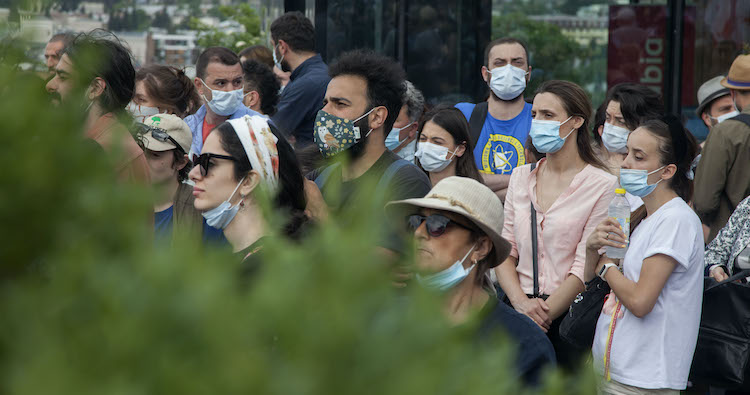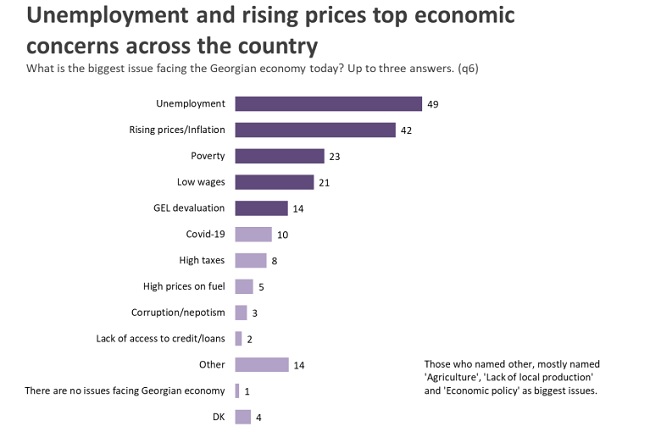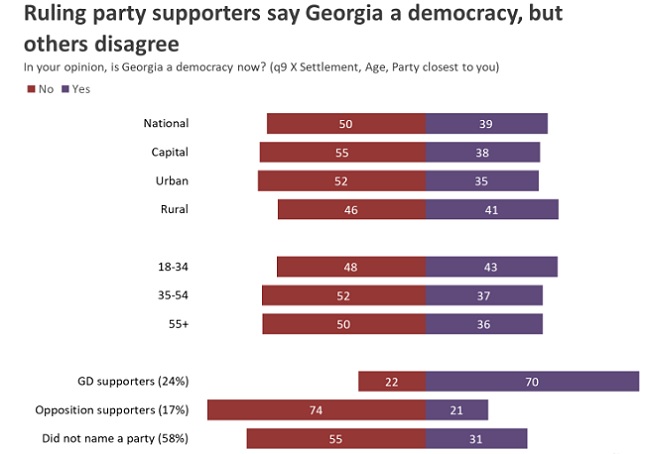NDI polls: Georgians concerned about poverty, crime, territorial integrity

The results of the survey reflect data collected between December 7-13, 2021, through phone interviews with a nationwide representative sample of Georgia’s adult population, excluding the Russian-occupied regions of Abkhazia and Tskhinvali (South Ossetia). Photo: Nino Alavidze/Agenda.ge.
Georgians place insufficient progress at the top national issue of concern, believing the situation regarding poverty, crime, territorial integrity, and education has got worse over the last 10 years, a poll released by the National Democratic Institute and the Georgian office of the Caucasus Research Resource Centers (CRRC) earlier today show.
 Unemployment remains top national issue of concern. Photo: NDI.
Unemployment remains top national issue of concern. Photo: NDI.
The new poll finds a majority of Georgians do not believe either the government or the political opposition is “acting in their best interest”, with over half the polled individuals - 53 percent - indicating they do not think the country’s parliament is passing legislation on issues that matter to them.
In addition, 52 percent do not believe their representative MP will take action if informed about issues in their constituency, and only a third believes the parliament regularly communicates with the public.
Although living in a democratic state remains important for the majority (92 percent), only 39 percent believe Georgia meets this criteria. Further, a plurality of Georgians think Georgia is no longer a beacon of democracy (34 percent), while 25 percent says Georgia has never been a good example of democracy to begin with,” the report reads.
 Only 23 percent of the polled citizens agree Georgia is a good example of democracy for the neighbouring states. Photo: NDI.
Only 23 percent of the polled citizens agree Georgia is a good example of democracy for the neighbouring states. Photo: NDI.
Half of the individuals answering questions of the poll praised the government for doing a good job handling the COVID pandemic. Of the citizens who agreed to take part in the poll, 42 percent said they would not get vaccinated against COVID-19, 29 percent said they were already vaccinated, while 25 percent said they intended to get a jab.
According to the poll, 34 percent of vaccinated individuals say they would not get a booster shot or were undecided about it.
The results of the survey reflect data collected between December 7-13, 2021, through phone interviews with a nationwide representative sample of Georgia’s adult population, excluding the Russian-occupied regions of Abkhazia and Tskhinvali (South Ossetia).
The survey carried out by CRRC Georgia included 1,099 completed interviews.
Read the full survey here.
 Tweet
Tweet  Share
Share